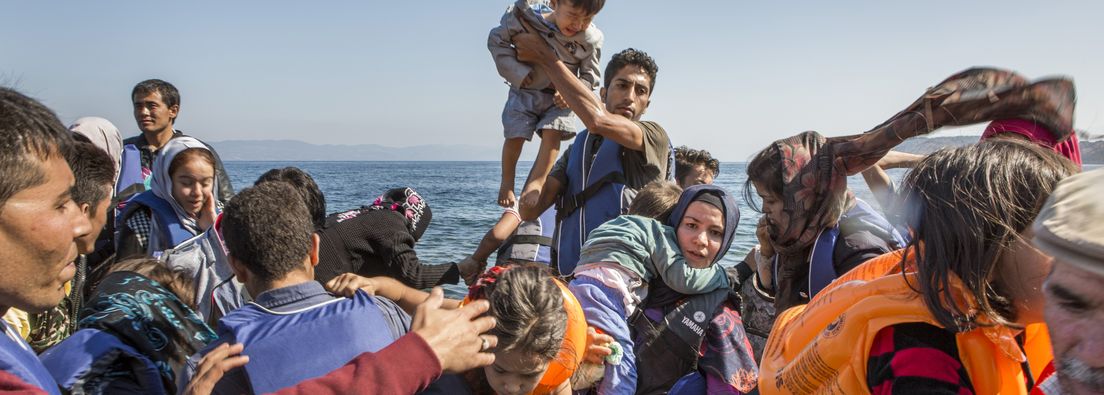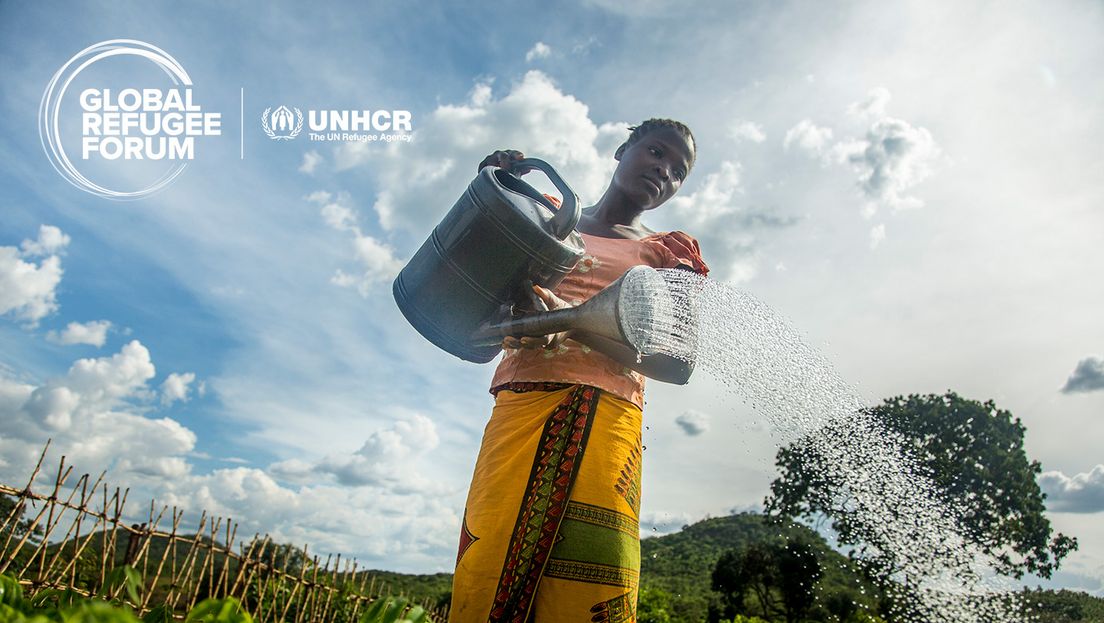Last year, the United Nations General Assembly adopted two important documents in order to help the international community improve its handling of large-scale movements of refugees and migrants: the Global compact for Safe, Orderly and Regular Migration (Global Compact for Migration) and the Global Compact on Refugees.
The central objectives of the Global Compact on Refugees
The UN Refugee Agency (UNHCR) estimates that more than 70 million people worldwide have been forcibly displaced. Around 80% have sought refuge in neighbouring countries, which in most cases are developing countries. In fact, one third of this global refugee population is being hosted in the world's least developed countries. Because of their limited economic capacities, these states are often unable to provide adequate services for the forcibly displaced people they host. This is particularly true in cases where large numbers of refugees are already living in the country. The result is both a lack of adequate services for refugees and a source of increased tensions between the refugees and the host community. Many refugees are therefore forced to continue their flight, often on dangerous routes which face them with serious risks.
The Global Compact on Refugees aims to address this problem. It seeks to more equally share the burden and responsibility of providing for refugees, to improve support for countries hosting large refugee populations, and to strengthen solidarity for refugees at a global scale. The goal is to enable a larger number of refugees to become self-reliant and independent from international aid. Aside from improving assistance on the ground, this should be supported by stepping up international efforts, linking humanitarian and development aid more effectively, and by securing more resettlement places and other legal pathways.
In addition to this central topic, the Global Compact on Refugees contains recommendations on key areas such as the need to identify and appropriately address the specific needs of women, children and other vulnerable groups, to ensure fairer and more efficient asylum procedures, to provide access to education and to the job market and to end statelessness.
The Global Refugee Forum
The Global Compact on Refugees sets several targets. Although these are not binding commitments, they are based on broad international consensus, which makes them an important benchmark for all states to measure their own accomplishments. The compact also establishes a follow-up process on the implementation of its recommendations. The most important of these is the Global Refugee Forum, a ministerial level conference held every four years where states and other actors can present what they have done or still plan to undertake in order to realise the objectives of the Global Compact and achieve tangible improvements for refugees. A follow-up system is currently being developed to ensure that the Forum and the pledges made there actually lead to concrete improvements.
The first Global Refugee Forum is taking place in Geneva this year on 17–18 December and will focus on the following main themes: arrangements for burden and responsibility-sharing, education, jobs and livelihoods, energy and infrastructure, solutions and protection capacity. In addition to state representatives, other stakeholders working in refugee-related areas are invited to attend the Forum in order to contribute and submit their own pledges. Switzerland has a special role in this first-ever Global Refugee Forum since the country will act as co-host together with UNHCR. Turkey, Germany, Ethiopia, Pakistan and Costa Rica will also have a key part to play in this year's Forum as co-conveners.
Switzerland is particularly committed to the areas of education and protection capacities, issues where it has a great deal of experience both at home and abroad. The Forum will also highlight Geneva's role as the humanitarian capital of the world. By including all of the relevant actors in a 'whole-of-Switzerland' approach, the Forum will also be an occasion to present the know-how and innovative solutions of Switzerland's cantons and cities, private sector, academia as well as civil society.
In the run-up to the Forum, many states and other stakeholders have already pledged to support the Compact's targets with practical measures. This is critical to making the progress achieved via the Compact tangible and to improving significantly the lives of thousands of refugees around the world.
Resettlement – interstate solidarity in action
One such obligation that states may undertake in their efforts to implement the objectives of the Global Compact on Refugees and improve burden and responsibility-sharing between states is the provision of resettlement places. Resettlement enables particularly vulnerable refugees to be taken in by a safe third country, in cases where the first host country is overstretched and cannot provide adequate protection for refugees that are furthermore unable to return to their country of origin. Such resettlement programmes are a crucial step in improving international solidarity in refugee protection. UNHCR estimates that more than 1.44 million particularly vulnerable refugees in more than 60 host countries will be in need of resettlement in 2020. Unfortunately, the shortage of such places worldwide means that only a fraction of refugees in need will actually receive one.
Switzerland has regularly taken in certain refugee groups in the past and re-joined UNHCR's resettlement programme in 2013 after a long break. The Federal Council recently decided to continue the resettlement programme and set an annual number of 800 refugees for the 2019–21 period. In so doing, Switzerland is directly contributing to the implementation of the Global Compact on Refugees.
Bushra and Shaymaa are among the refugees that were assisted by the Swiss resettlement programme. The two young Iraqi women were forced to flee their home because of the rapidly growing influence of the fundamentalists in Iraq, which posed a threat to their lives. They first sought refuge in Syria but because both women continued to face persecution there, they were selected for one of the few resettlement places in Switzerland in 2015. Shaymaa now hopes that "more people can be given a resettlement place and won’t have to go on such a dangerous journey all by themselves".
For more information on the Global Refugee Forum go to the following website at www.unhcr.org/global-refugee-forum.html
Read Bushra and Shaymaa’s story (in French or German): www.unhcr.org/un-nouveau-depart-grace-la-reinstallation.html


